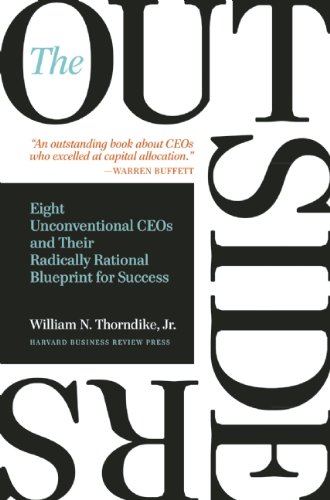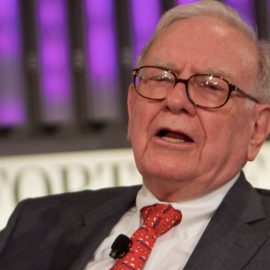

This article is an excerpt from the Shortform summary of "The Outsiders" by William N. Thorndike, Jr. Shortform has the world's best summaries of books you should be reading.
Like this article? Sign up for a free trial here .
How do you take a grow a movie theater company? Dick Smith, CEO of General Cinema, found a way: by expanding into other business associated with movie theaters.
General Cinema Theatres was a movie theater company founded in 1922 by Phillip Smith, who expanded drive-in theaters throughout New England and the Midwest. When he died in 1962, his son Dick Smith took over as CEO. Dick Smith further expanded the company’s theater locations, then diversified into unrelated businesses such as beverage bottling and retail.
Dick Smith: Policy of Expansion and Diversification
Dick Smith further expanded the General Cinema theater locations, then diversified into unrelated businesses such as beverage bottling and retail. While diversifying acquisitions often end in failure, Smith executed them with finesse.
Dick Smith’s first move was to expand General Cinema’s theater footprint. He innovated in three ways:
- He expanded into suburban shopping malls, realizing that demographic trends were pointing to population growth in these areas.
- He expanded quickly by leasing land to develop theaters on, instead of purchasing the land under it. He realized that the theaters’ strong, predictable cash flow would make this financially viable, and it reduced the upfront investment needed for new locations.
- He increased the number of screens per theater to increase audiences and concession sales.
In 1968, he entered beverage bottling by purchasing American Beverage Company (ABC), the largest independent Pepsi bottler, for 20% of his company’s enterprise value. His work in theater concessions had given him an appreciation for the attractive market dynamics of beverage bottling:
- Beverage companies formed an oligopoly, representing high returns on capital and strong long-term prospects.
- Pepsi bottlers tended to be fragmented, compared to the larger Coca-Cola bottlers. Furthermore, since they served the #2 brand (Pepsi), they tended to have lower valuations. Thus, Smith could buy up bottlers for lower prices.
- ABC could serve as a platform company, to which new acquisitions of bottlers would be added to increase scale and profits.
Over the next decade, Dick Smith purchased more bottling companies. Increasing scale allowed for ever more efficient operations, such as negotiating down can prices and buying its own sugar instead of having it supplied by Pepsi.
Over the 1990s and 2000s, Smith gradually sold the operating businesses:
- In 1991, the theater business was spun off into GC Companies (which would ultimately go bankrupt in 2000 and be purchased by AMC).
- In 2003, HBJ was acquired by Reed Elsevier.
- In 2006, Neiman Marcus was acquired by a group of private equity firms. Smith saw that expanding Neiman Marcus would be expensive, while private equity firms were paying record amounts for retail.
With this, General Cinema Theatres ceased to operate, returning tremendous value for shareholders through 43 years of Dick Smith’s leadership.
Opportunistic Acquisitions
At General Cinema Dick Smith’s acquisitions often featured special opportunities where he could exert leverage.
- For Pepsi beverage bottlers, Smith knew that the fragmentation of the industry and #2 status of Pepsi meant better prices for buying each bottler.
- For the retailer CHH, he knew the tight turnaround meant low competition, while he could uniquely move fast given his clear acquisition criteria.
- For HBJ, he knew that the complicated debt structure would turn away buyers.
Strong Operating Team
Dick Smith collaborated closely with three top executives: his CFO, COO, and legal counsel. They actively debated company strategy, and Smith invited them to publicly disagree with him, even in front of the board.
As with other outsider CEOs, General Cinema’s Dick Smith left day-to-day operations to his three top executives, instead focusing on strategy and capital allocation.
Capital Allocations
In general, for capital allocations, Dick Smith behaved like other outsider CEOs in these ways:
- He avoided issuing stock, holding onto shares like “a feudal lord.”
- He paid little in dividends.
- He repurchased a third of General Cinema Theatres shares over time, with an internal rate of return of 16%.
- He preferred to focus on cash earnings, not reported income.
- He used debt to fund acquisitions, with debt-to-cash flow of 3 times or more.
- He minimized taxes, enjoying a reduced rate of 33% compared to the nominal corporate tax rates of 50%.
At General Cinema Theatres, Dick Smith saw several paths forward to expanded the movie theater company. Through smart acquisitions and a seamless operations system, Smith was able to create opportunity and act quickly to grow the company, leading to fantastic performance when the company’s divisions were sold at premium prices in the 2000s.

———End of Preview———
Like what you just read? Read the rest of the world's best summary of William N. Thorndike, Jr's "The Outsiders" at Shortform .
Here's what you'll find in our full The Outsiders summary :
- What great CEOs like Warren Buffett do that average CEOs don't
- How to master the art of capital allocation
- How to be a great manager that your team is excited to work with






